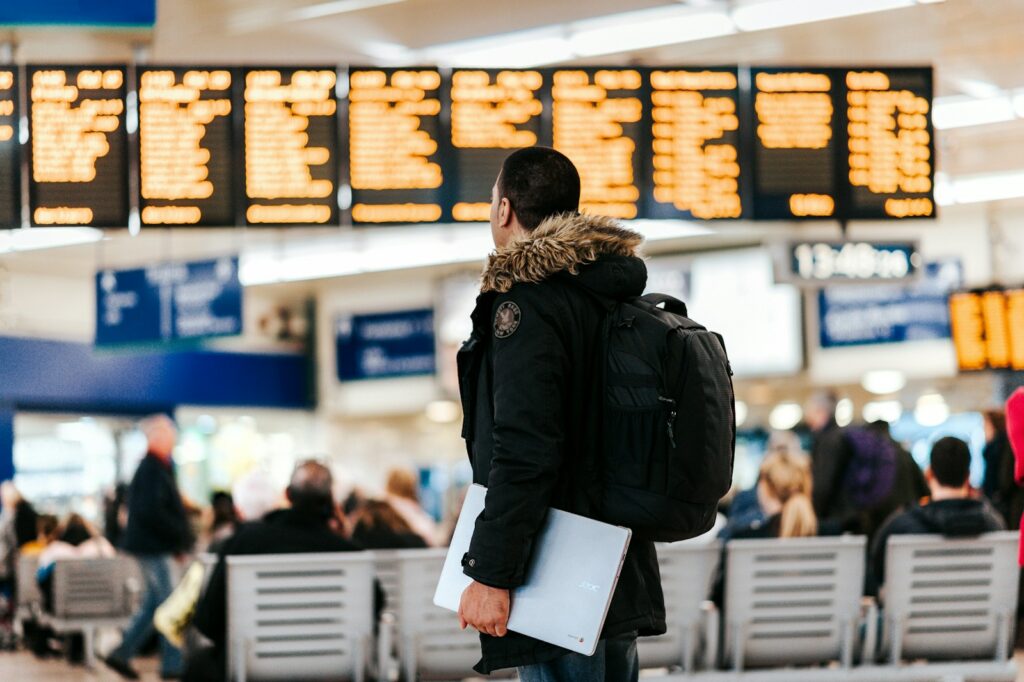The European Union is preparing to implement the Input-Output System (SES)The SES, a major change in the management of migratory flows that was planned for November 2024, but whose entry into force has been modified. Under the SES, every entry and exit of third-country nationals will be recorded in a central database, using advanced technology and biometric data to ensure more secure and efficient border control. This system will impact visitors to the Schengen area, including tourists, business travelers and non-EU family members.
What is happening with the SES?
European Commissioner for Home Affairs Ylva Johansson, has confirmed that the system will not be implemented on schedule. This postponement responds to the need to ensure a smooth and effective transition, considering that several key Member States, including Germany, France and the Netherlands, have expressed that they need more time to be fully prepared.
Here's everything you need to know about the SES, how it will work and what implications it will have for travelers when it comes into effect.
What is the Input-Output System (SES)?
The SES, known in English as EES (Entry/Exit System), is an electronic system designed to record and store the date, time and place of entry and exit of non-EU visitors to EU countries. The main purpose of this system is to facilitate immigration control and ensure border security, replacing the traditional practice of stamping passports in favor of a more efficient digital method.
How does it work?
Instead of stamping passports, the SES will automatically record travelers' data at the time of border control. This includes:
- Photograph of the face.
- Fingerprint scanning.
- Registration of the identity document.
This process will be carried out every time a traveler enters or leaves the Schengen area, which includes countries such as Spain, France, Italy and Germany, among others.
To whom does the SES apply?
The SES is intended for citizens of countries that are not part of the EU or the Schengen area, i.e. all citizens of countries that are not part of the EU or the Schengen area, i.e. all citizens of countries that are not part of the Schengen area. third country nationals who wish to enter the Schengen area for short periods. However, there are notable exceptions:
Travelers in certain categories such as research, studies or volunteer work.
Nationals of EU countries and of Cyprus and Ireland.
Persons with residence cards related to EU nationals.

What Data Will Be Collected and For How Long?
The SES will not only store data on identity and travel documents, but will also include biometric data. The retention duration of the information is as follows:
- Three yearsfor those who respect the conditions of short stay (up to 90 days in a period of 180 days).
- Five yearsfor those who overstay their permitted period of stay.
Being aware of how this data is handled is crucial for all travelers heading to the EU.
Impact on Travelers
The new system has the potential to significantly affect passenger flow and waiting times at border controls. Some countries have already expressed concern about possible delays, especially on popular routes between the UK and Europe. However, authorities are working on plans to implement the SES in a gradual and flexible manner, thus minimizing the impact on waiting times.
The Future of ETIAS
In parallel to the SES, the European Travel Information and Authorization System (ETIAS) will be implemented from mid-2025. This system will require travelers to apply for authorization before traveling to 30 European countries, similar to the ESTA in the U.S. It is an additional measure to strengthen security at EU borders.
Conclusion
The implementation of the Input-Output System (SES) is an important step in modernizing and strengthening border security in the European Union. While it represents a change in the travel experience for third country nationals, it also offers advantages in the supervision of stays and immigration control. As the effective date approaches, staying informed and planning accordingly will be essential to avoid inconvenience.
If you have questions about how this system might affect you or need personalized advice for your next trip, we will be happy to assist you. KR Lawyers we are at your disposal to help you.
Contact us for more information | Request advice today
Address: Velázquez Moreno 3, Bajo A, CP 36201, Vigo Pontevedra.
Telephone numbers: (+34) 612 48 40 27
Email: info@krabogada.com



